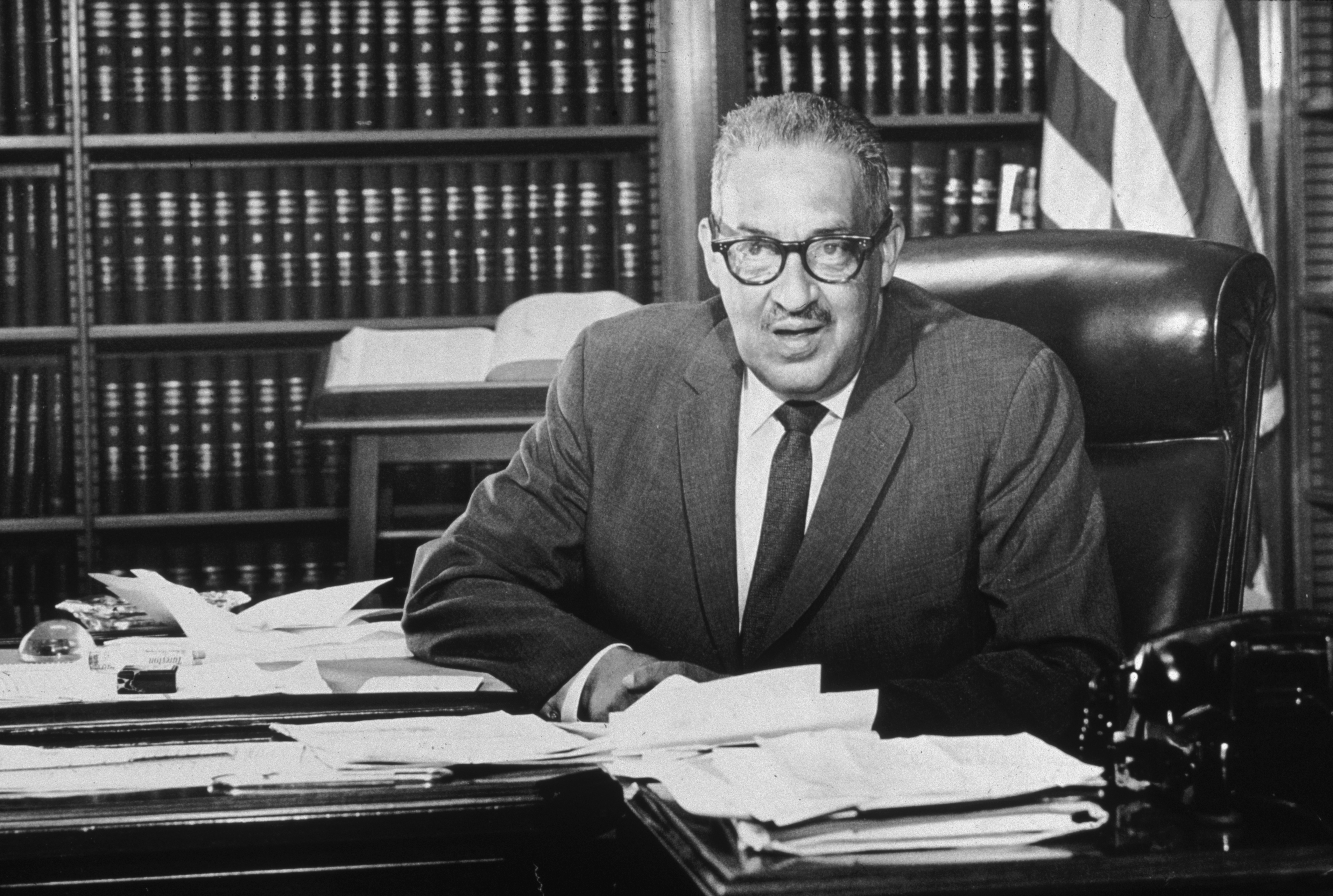On Sept. 9, fans and history buffs will get an inside look at the extraordinary life of Thurgood Marshall, the first African American Supreme Court justice to take the bench in 1967.
Set to premiere on PBS, Becoming Thurgood: America’s Social Architect traces the upbringing and legacy of Justice Marshall. The documentary follows his journey from his roots in Baltimore, Maryland, through his education at Lincoln and Howard universities—two premier Historically Black Colleges and Universities (HBCUs)—to his trailblazing work as a civil rights lawyer and jurist. It will also explore his pivotal role in challenging school segregation and championing justice, culminating in his historic appointment to the U.S. Supreme Court.
Viewers are in for a treat as the documentary will feature the iconic justice retelling his own life story using rare footage pulled from an eight-hour oral history recording conducted by the civil rights leader, according to the Chicago Defender.
“For the first time, audiences will hear Thurgood Marshall tell his own story — in his own words,” the documentary’s director Alexis Aggrey told the publication on July 2. “This film is the first to center Marshall’s own voice, drawn from a rare eight-hour oral history. It’s not just a documentary; it’s a conversation with a man whose legal mind reshaped the nation and whose legacy still echoes through our justice system today.”
Thurgood Marshall’s incredible life.
As a lawyer and judge, Thurgood Marshall dedicated his career to defending the constitutional rights of all Americans, a commitment that earned him the nickname “Mr. Civil Rights.” According to the United States Courts website, after attending the all-Black Lincoln University, Marshall was denied admission to the University of Maryland School of Law due to his race. Undeterred, he enrolled at Howard University School of Law, where he graduated first in his class and studied under Charles Hamilton Houston, the school’s vice-dean and a leading civil rights strategist.
At Howard, Marshall came to believe that the doctrine of “separate but equal” established in Plessy v. Ferguson was fundamentally flawed. He recognized that education was key to equality and was deeply moved by the glaring disparities in educational opportunities for Black Americans. Marshall and Houston launched a legal campaign against segregation, beginning with cases like Murray v. Maryland (1936) and Missouri ex rel. Gaines v. Canada (1938).
When Houston returned to private practice in 1938, Marshall took the helm of the NAACP Legal Defense and Educational Fund. He went on to argue pivotal cases such as Sweatt v. Painter and McLaurin v. Oklahoma (both 1950), laying the groundwork for the landmark Brown v. Board of Education (1954), in which the Supreme Court struck down school segregation as unconstitutional.
After years of fighting for justice, Marshall was appointed U.S. Solicitor General in 1965 by President Lyndon Johnson, becoming the third-highest official in the Justice Department. In 1967, Johnson nominated him to the U.S. Supreme Court, where he served until his retirement in 1991 before his untimely death in 1993.
Stanley Nelson, who served as an executive producer behind the forthcoming project, told the Chicago Defender that it was “an honor” to shed light on Justice Marshall’s fearless life.
“It was an honor to work on this film about an American titan whose legacy continues to expand and endure in these turbulent times.”
Becoming Thurgood: America’s Social Architect will premiere on Sept. 9 at 10 p.m. ET on PBS, PBS.org, and the PBS app. Will you be watching?
SEE ALSO:
What Was Malcolm X Working On When He Was Assassinated?
Civil Rights Activist Medgar Evers’ Quest For Racial Equality Still Resonates
Documentary On The Legendary Justice Thurgood Marshall Set To Premiere In Fall
was originally published on
newsone.com



